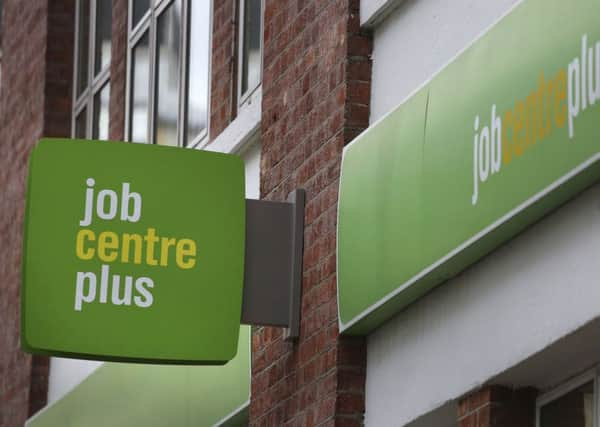Record numbers in work as jobless tally falls again


The employment rate reached a record high of 74.5%, with 31.8 million people in work in the three months to June - 172,000 more than the previous quarter.
A total of 1.64 million people are unemployed - a fall of 52,000 over the quarter and 207,000 down compared with a year ago, giving a jobless rate of 4.9%.
Advertisement
Hide AdAdvertisement
Hide AdIn Yorkshire, the figure is significantly higher at 5.9%, or 159,000 people - 7,000 fewer than the previous quarter.
The national jobless total is now at its lowest for eight years, while the unemployment rate is at its lowest since the summer of 2005, according to the Office for National Statistics (ONS).
The claimant count, including those on Jobseeker’s Allowance, fell by 8,600 to 763,000 in the period after the Brexit vote between June and July.
However, the claimant count rose by 900 between May and June, the ONS said.
Advertisement
Hide AdAdvertisement
Hide AdJob vacancies were down 7,000 between May and July to 741,000, a period briefly covering Britain’s vote to leave the European Union.
Average earnings increased by 2.4% in the year to June, 0.1% up on the previous month.
ONS statistician David Freeman said: “The labour market continued on a strong trend in the second quarter of 2016, with a new record employment rate.
“However, little of today’s data cover the period since the result of the EU referendum became known, with only claimant count and vacancies going beyond June - to July for the former and to May-July for the latter.”
Advertisement
Hide AdAdvertisement
Hide AdOther figures showed that the number of people classed as economically inactive has fallen by 58,000 to 8.8 million in the quarter, the lowest figure for 13 years.
Employment Minister Damian Hinds said: “These record-breaking figures show that there are more people in work than ever before, which is great news as we build a Britain that works for everybody, not just the privileged few.
“We’re in a position of strength, but we can’t be complacent, which is why we’re pressing ahead with our welfare reforms like Universal Credit to ensure it always pays for people to be in work.
“The job now is to build on this success story so that everybody can benefit from the opportunities that are being created regardless of who they are or where they come from.”